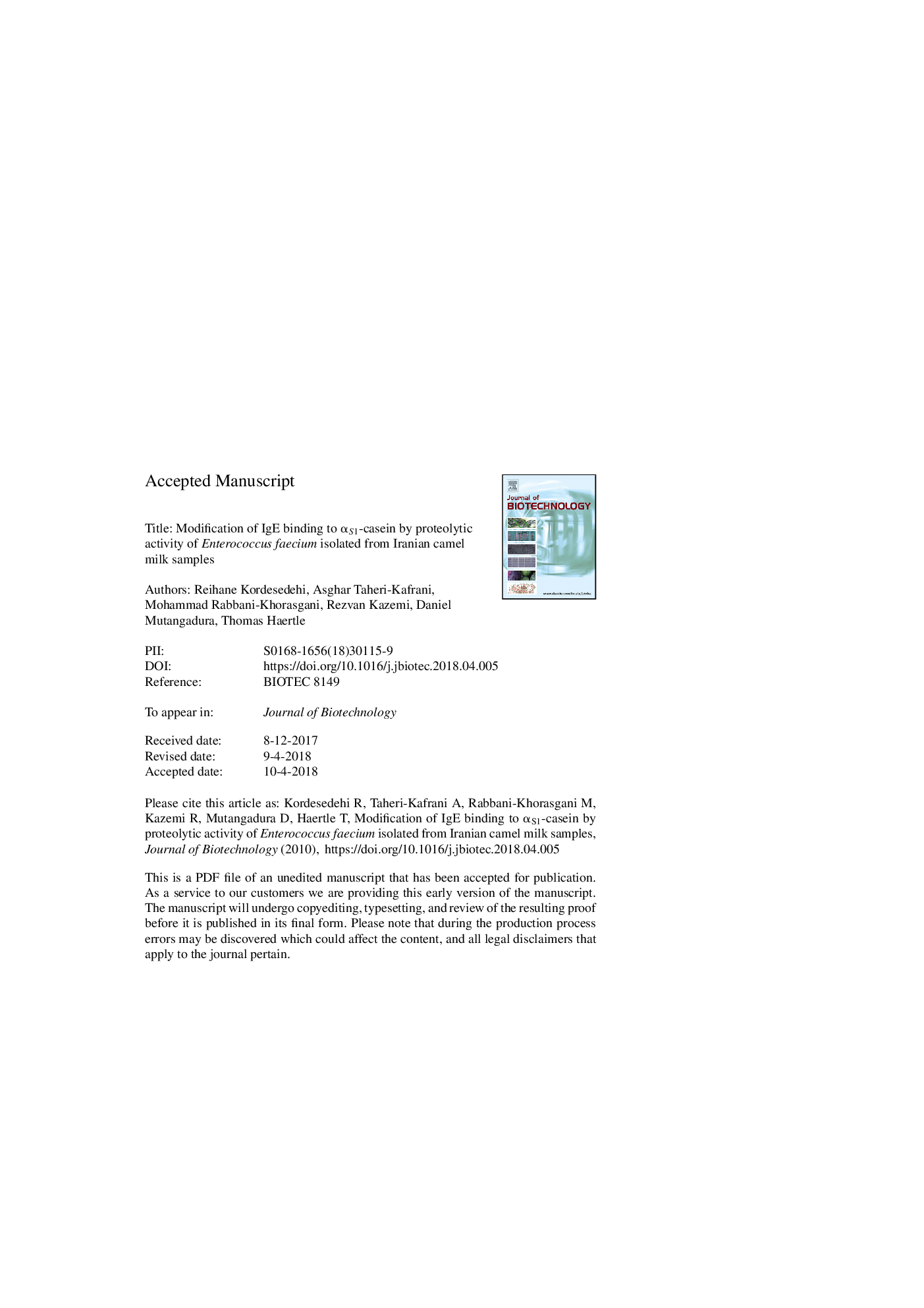| Article ID | Journal | Published Year | Pages | File Type |
|---|---|---|---|---|
| 6490303 | Journal of Biotechnology | 2018 | 25 Pages |
Abstract
Milk is a perfect source of nutrients for neonates. When breast feeding cannot be done, an infant's alimentation is usually initiated to cow's milk, among the primary foods. It has been reported that about 2.5% of juveniles under the age of 3 years manifest allergic reactions to cow's milk proteins. Among the cow's milk proteins, casein fractions are considered as the strongest allergenic proteins. The proteolytic enzymes of lactic acid bacteria (LAB), during fermentation of dairy products, can break down milk proteins especially caseins and subsequently reduce the immune reactivity of allergenic proteins. In this research, raw bovine and camel milk samples were screened for cocci LAB strains and after isolation, their proteolytic activity against bovine milk caseins were evaluated by SDS-PAGE and RP-HPLC. The potential of cocci LAB strains on αS1-casein degradation and their potential to break down the principle allergenic epitopes of this protein was detected using indirect competitive ELISA. Molecular identification of the best proteolytic strain was fulfilled by 16S rDNA fragment sequencing with universal primers. The obtained results demonstrated that Enterococcus faecium isolated from raw camel milk samples was the most efficient isolate in hydrolyzing Na-caseinate and αS1-casein. Hydrolysated αS1-casein by Enterococcus faecium was also less recognized by IgE of bovine milk allergic patients' sera in comparison with native αS1-casein. It has been proposed that Enterococcus faecium could be an efficient strain in allergenicity reduction of cow's milk proteins. So it could be an excellent candidate to be potentially used in dairy industries.
Keywords
Related Topics
Physical Sciences and Engineering
Chemical Engineering
Bioengineering
Authors
Reihane Kordesedehi, Asghar Taheri-Kafrani, Mohammad Rabbani-Khorasgani, Rezvan Kazemi, Daniel Mutangadura, Thomas Haertle,
